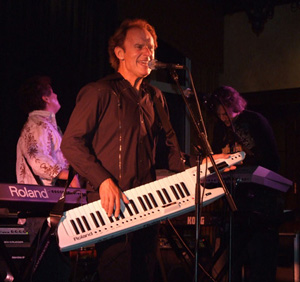By Shawn Perry
One of the first concerts I attended as a youngster was that of Rick Wakeman at the Anaheim Convention Center. Memories of the actual show are a bit hazy, but I do recall who the other two acts on the bill were. One was British blues band Savoy Brown, and the other — who actually opened — was Gary Wright.
At the time, I had no idea who Gary Wright was. His solo album, The Dream Weaver, hadn’t hit the airwaves yet, and I was at a loss when he came out on stage with a keyboard hanging around his neck. Of course, the very next year, when I saw him play with Yes and Peter Frampton at Anaheim Stadium, I knew a little more about him because the album and the two singles it spawned, “Dream Weaver” and “Love Is Alive,” were smash hits. It would be several years before I learned even more about him.
Slowly, but surely I connected the dots. I saw his name on several of George Harrison’s solo albums. I heard Spooky Tooth’s “Evil Woman” and found out Wright was on it as well. In fact, he was with that band before he had solo career. The more I picked up, the more intrigued I became. Turns out Wright’s from New Jersey, not London or Liverpool as I was lead to believe. He has a degree in psychology. Most surprisingly, he’s as responsible for the emergence of the synthesizer as a mainstream instrument as Keith Emerson and the aforementioned Rick Wakeman.
More recently, I heard that Wright continues to be an active and working musician. He’s releasing new music and still plays dates with Spooky Tooth. In fact, I spoke to him just prior to his departure to London where he and Spooky Tooth were to play at an Island Records 50th anniversary concert, a week-long celebration alongside U2, Grace Jones and the Wailers, before embarking on a short hop through Europe. Over the course of our discussion, I discovered more about the man and his incredible career than I ever imagined. Gary Wright has truly weaved his dreams into reality.
To read the rest of this interview, order your copy of
Conversations with the Masters:
The VintageRock.com Interviews




















